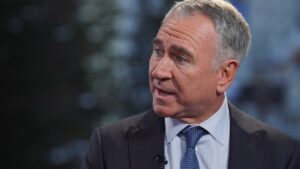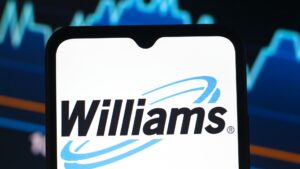Environmental issues often grab the headlines when it comes to sustainable investing. Now, in a new survey, a large number of investors say they put a higher preference on companies that pay fair wages to employees.
A new report from Cerulli Associates, a research firm in the asset-management industry, showed increasing interest in environmental, social and governance (ESG) investing from affluent retail investors. The firm’s survey of those from under age 40 to over 70 showed that 49% of respondents said they would rather invest in companies that have a positive social or environmental impact, up from 43% in 2019.
When broken down by topic, preference for investing in a company that pays workers fair wages edged out a preference for environmentally friendly companies, with 65% of total respondents flagging wages and 53% citing environment.
For its report, called The Cerulli Edge-U.S. Retail Investor Edition (third-quarter 2021 edition), the firm surveyed affluent investors in the first quarter of 2021, people with more than $250,000 in investable assets, and the near-affluent, those who earn more than $125,000 annually and are under age 45.
Biggest surprise
The topic of fair wages falls under the social pillar of ESG investing, but like a lot of social issues, it slips through the cracks when it comes to bigger topics such as climate change. Cerulli said the response to the wages question was the biggest surprise in the survey’s findings, and the data highlight a big challenge for people who want to own ESG investments — the focus on environmental issues often overshadow social and governance issues.
Why might fair wages resonate so strongly with survey participants? Cerulli suggested an emotional tie.
“Respondents may be considering the importance they placed in their own life on earning a livable wage, while environmental concerns may never have been a major consideration for them,” the report said.
The charts, below, from Cerullli show the gap in ESG investing interest by age in their survey. There’s little surprise that younger investors are more interested in ESG. But Cerulli says what’s particularly notable is the difference between how older survey participants responded to the fair wages question versus their views on ESG overall.
“These results are indications of interest 16 to 25 percentage points higher among respondents in the three oldest cohorts compared with their … overall ESG interest levels,” the research firm said.
Here are the percentages of people that preferred ESG investing, by age and investible assets, during the first quarter of 2021. The ages are for heads of households:
| Household investable assets | 40-49 | 50-59 | 60-69 | >70 | Total | |
| $100K-$250K | 71% | 73% | N/A | N/A | N/A | 72% |
| $250K-$500K | 75% | 62% | 54% | 40% | 38% | 50% |
| $500K-$1M | 81% | 69% | 53% | 36% | 29% | 45% |
| $1M-$2M | N/A | 73% | 46% | 33% | 30% | 41% |
| >$2M | N/A | 64% | 46% | 31% | 25% | 40% |
| Total | 75% | 68% | 51% | 36% | 31% | 49% |
| Source: Cerulli Associates | ||||||
Here are the percentages of people that preferred investing in companies with fair wages:
| Household investable assets | 40-49 | 50-59 | 60-69 | >70 | Total | |
| $100K-$250K | 79% | 76% | N/A | N/A | N/A | 78% |
| $250K-$500K | 88% | 68% | 76% | 57% | 60% | 67% |
| $500K-$1M | 82% | 82% | 67% | 63% | 54% | 66% |
| $1M-$2M | N/A | 81% | 54% | 54% | 59% | 60% |
| >$2M | N/A | 73% | 64% | 44% | 51% | 54% |
| Total | 82% | 75% | 67% | 56% | 57% | 65% |
| Source: Cerulli Associates | ||||||
Here are the percentages of people that preferred investing in environmentally friendly companies:
| Household investable assets | 40-49 | 50-59 | 60-69 | >70 | Total | |
| $100K-$250K | 75% | 67% | N/A | N/A | N/A | 72% |
| $250K-$500K | 80% | 63% | 52% | 41% | 43% | 51% |
| $500K-$1M | 80% | 71% | 60% | 46% | 38% | 53% |
| $1M-$2M | N/A | 71% | 42% | 37% | 43% | 46% |
| >$2M | N/A | 74% | 52% | 38% | 36% | 46% |
| Total | 78% | 67% | 52% | 41% | 41% | 53% |
| Source: Cerulli Associates | ||||||
Funds that highlight labor
No mutual funds or exchange traded funds exclusively target social themes of fair wages or labor practices. However, most of the actively managed, long-established sustainable investment mutual fund families such as Calvert, Parnassus or Pax World Funds often include screens for companies that treat employees well as part of their overall sustainability investment criteria.
There are four passive ETFs with assets under management of nearly $100 million or more that specifically screen for positive treatment of employees or fair labor practices as part of their index methodology for stock selection. All are large-cap U.S. equity funds, and not surprisingly, all hold the tech heavyweights of Apple
AAPL,
Alphabet
GOOG,
and Microsoft
MSFT,
in their top 10 holdings, but some also have a few surprises as their biggest holdings.
1. Global X Conscious Companies ETF
KRMA,
is the largest of the four funds, with $500 million in assets and an annual expense ratio of 0.43%. It’s an equal-weighted index that uses ESG metrics to measure how well a company treats all stakeholders, including employees, customers, suppliers, investors and the communities where the company operates. Technology occupies a 29% weighting, and one non-tech holding in the top 10 is commercial real-estate firm Jones Lang LaSalle
JLL,
which ESG risk-ratings firm Sustainalytics considers to have negligible ESG risk. The ETF is up 21% year-to-date, while the S&P 500
SPX,
is up 22%.
2. IQ Candriam ESG US Equity ETF
IQSU,
is a market-cap weighted fund with $484 million in assets and a 0.09% expense ratio. The fund’s ESG selection criteria scores companies based on how it treats its customers and employees, a firm’s environmental initiatives and how well suppliers adhere to fair labor standards, among other issues. It has the highest weighting to technology, at 43%. Tesla
TSLA,
is in the top five. However, there are many news reports of poor labor management. MSCI’s ESG ratings considers Tesla a laggard on labor issues. The ETF is up 22% year-to-date, matching the S&P 500’s return.
3. Goldman Sachs JUST U.S. Large Cap Equity ETF
JUST,
is a tier-weighted index of companies in the Russell 1000, building the index based on an annual survey of business behavior priorities. Companies that treat their workers well, including on worker pay and well-being, get the highest weight. The fund has a 35% technology-sector weighting. Among the highest-weighted non-tech names is Johnson & Johnson
JNJ,
which MSCI considers an ESG leader in human capital development. Both the ETF and the Russell 1000 index are up 21%. It has $264 million in assets and a 0.20% expense ratio.
4. Humankind U.S. Stock
HKND,
screens companies on four “humankind values,” the value a firm creates for investors, consumers, employees and society overall. The index methodology adjusts on the basis of the individual firm’s supply-chain relationships. The ETF’s heaviest weighting is to health care, at 31%, with technology at 16%. Notable top 10 holdings are agricultural firm Bunge
BG,
which received MSCI’s top ESG rating, and Pfizer
PFE,
which MSCI considers a laggard overall among pharmaceutical companies. It launched in February and has $95 million in assets. It’s up 5.5% in three months versus the S&P 500’s return of 8%. It has an expense ratio of 0.11%.
As with any investment, one should look beyond the fund’s name and initial description to vet the holdings before they consider buying a fund.
Debbie Carlson is a MarketWatch columnist. She doesn’t own any of the funds or stocks mentioned in this article. Follow her on Twitter @DebbieCarlson1.
This post was originally published on Market Watch






